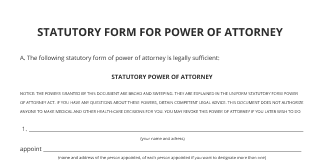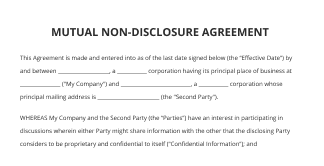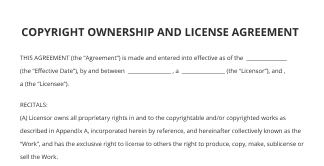Discover the Kansas Notary Handbook for Seamless Document Signing
Move your business forward with the airSlate SignNow eSignature solution
Add your legally binding signature
Integrate via API
Send conditional documents
Share documents via an invite link
Save time with reusable templates
Improve team collaboration
See airSlate SignNow eSignatures in action
Understanding the Kansas Notary Handbook
The Kansas Notary Handbook serves as a crucial resource for notaries in Kansas, providing guidelines on the responsibilities, legal requirements, and best practices for performing notarial acts. This handbook outlines the essential functions of a notary, including how to properly verify identities, administer oaths, and maintain records. Familiarity with this handbook ensures that notaries comply with state laws and uphold the integrity of their duties.
Key Responsibilities of a Notary
Notaries in Kansas are tasked with several important responsibilities, including:
- Verifying identities: Notaries must confirm the identity of signers through valid identification.
- Administering oaths: They are authorized to administer oaths and affirmations for various legal documents.
- Maintaining records: It is essential for notaries to keep accurate records of all notarial acts performed.
- Ensuring proper execution: Notaries must ensure that documents are signed in their presence and that all parties understand the content.
Legal Requirements for Notaries in Kansas
To serve as a notary in Kansas, individuals must meet specific legal requirements. These include:
- Being at least eighteen years old.
- Being a resident of Kansas or having a place of employment or practice in the state.
- Completing an application and obtaining a notary commission from the Secretary of State.
- Undergoing training if required, to ensure understanding of notarial laws and procedures.
Maintaining Notary Records
Proper record-keeping is vital for notaries. Kansas law requires notaries to maintain a journal of all notarial acts. This journal should include:
- The date and time of the notarial act.
- The type of document being notarized.
- The names and signatures of all parties involved.
- A description of the identification provided by the signers.
Keeping accurate records helps protect notaries from liability and ensures compliance with state regulations.
Common Notarial Acts in Kansas
Notaries in Kansas perform various types of notarial acts, including:
- Acknowledgments: Confirming that a signer has willingly signed a document.
- Jurats: Certifying that a signer has sworn to the truthfulness of a document.
- Copy certifications: Verifying that a copy of a document is a true and accurate reproduction of the original.
Understanding these common acts helps notaries navigate their duties effectively.
Resources for Kansas Notaries
In addition to the Kansas Notary Handbook, notaries can access various resources to enhance their knowledge and skills. These may include:
- Workshops and training sessions offered by the Secretary of State.
- Online forums and communities for notaries to share experiences and advice.
- Publications and guides from professional notary organizations.
Utilizing these resources can help notaries stay updated on changes in laws and best practices.
airSlate SignNow solutions for better efficiency
Our user reviews speak for themselves






Why choose airSlate SignNow
-
Free 7-day trial. Choose the plan you need and try it risk-free.
-
Honest pricing for full-featured plans. airSlate SignNow offers subscription plans with no overages or hidden fees at renewal.
-
Enterprise-grade security. airSlate SignNow helps you comply with global security standards.

Kansas Notary Manual: How to Utilize airSlate SignNow for Your Document Requirements
The Kansas notary manual highlights the significance of effective document organization. airSlate SignNow provides a robust solution for companies aiming to optimize their signing procedures. With its accessible interface and powerful functionalities, you can improve your document workflow with ease.
Kansas Notary Manual: Detailed Instructions for Employing airSlate SignNow
- Launch your web browser and visit the airSlate SignNow website.
- Establish a complimentary trial account or sign in to your current account.
- Choose the document you desire to sign or send for signatures and upload it.
- If you intend to reuse this document, save it as a template for future reference.
- Open your uploaded file and perform necessary modifications, such as incorporating fillable fields or entering specific details.
- Sign the document and assign signature fields for the recipients.
- Press 'Continue' to set up and dispatch an eSignature invitation.
airSlate SignNow offers an outstanding return on investment with its extensive features designed for small to medium-sized enterprises. Its user-friendly layout facilitates easy scaling, ensuring your document management requirements evolve alongside your business. Furthermore, with clear pricing, you won’t face unforeseen charges.
With round-the-clock assistance available for all paid plans, airSlate SignNow distinguishes itself as a dependable option for your eSignature requirements. Begin enhancing your document processes today!
How it works
airSlate SignNow features that users love
Get legally-binding signatures now!
FAQs
-
What is the most common mistake made by a notary?
Failing to require signers to be present at the notarization is the number one claim of misconduct against Notaries. -
How much can you make as a notary in Kansas?
Notary Salary in Kansas. $55,300 is the 25th percentile. Salaries below this are outliers. $64,700 is the 75th percentile. -
What does it take to be a notary in Kansas?
Get a $12,000 four-year surety bond. Get your Notary seal and journal. Complete the application form and get it signNowd. Submit the application with the oath, surety bond, impression of your Notary seal, and $25 filing fee to the Secretary of State. -
What are the requirements to be a notary in Kansas?
Notary Qualifications To be eligible to be a notary in Kansas, state law requires that a person must be: At least 18 years of age. A Kansas legal resident, or a resident of a bordering state, who regularly carries on a business or profession in Kansas or who is regularly employed in Kansas. -
What type of notary makes the most money?
#1: Get Notary Jobs as a Notary Loan Signing Agent The first — and most lucrative — way to make money as a notary public is by becoming a loan signing agent. -
How much does a notary make in Kansas?
Notary Salary in Kansas. $55,300 is the 25th percentile. Salaries below this are outliers. $64,700 is the 75th percentile. -
Can a notary signNow for a family member in Kansas?
A. A notary may not signNow his or her own signature, but may no- tarize the signatures of his or her spouse, children, parents or other relatives.
What active users are saying — kansas notary handbook
Get more for kansas notary handbook
- Invoice Online Free PDF for NPOs
- Invoice online free pdf for non-profit organizations
- HVAC Invoice Template for Businesses
- Hvac invoice template for corporations
- HVAC Invoice Template for Enterprises
- Hvac invoice template for small businesses
- HVAC Invoice Template for Teams
- Hvac invoice template for organizations
Find out other kansas notary handbook
- Unlocking eSignature Legitimacy for Insurance Industry ...
- Boost Your Staffing Efficiency with eSignature ...
- ESignature Legality for Insurance Industry in United ...
- ESignature Lawfulness for Accounting and Tax in ...
- Ensuring eSignature Lawfulness for Healthcare in the ...
- Enhance eSignature Legitimacy for Government in United ...
- Boost your Manufacturing Business with eSignature ...
- Unlocking eSignature Legitimateness for Higher ...
- Digital Signature Legality for Retail Trade in United ...
- Ensuring Digital Signature Legality for Hospitality in ...
- Digital Signature Lawfulness for Insurance Industry in ...
- Understanding the Lawfulness of Digital Signatures for ...
- Ensuring Digital Signature Lawfulness for Hospitality ...
- Digital Signature Legitimacy for Government in United ...
- Unlock the Power of Digital Signature Legitimateness ...
- Boosting Digital Signature Legitimateness for Insurance ...
- Unlocking Digital Signature Legitimateness for Real ...
- Digital signature licitness for Financial Services in ...
- Unlock the Power of Digital Signature Licitness for ...
- Electronic Signature Legality for Mortgage in United ...






























